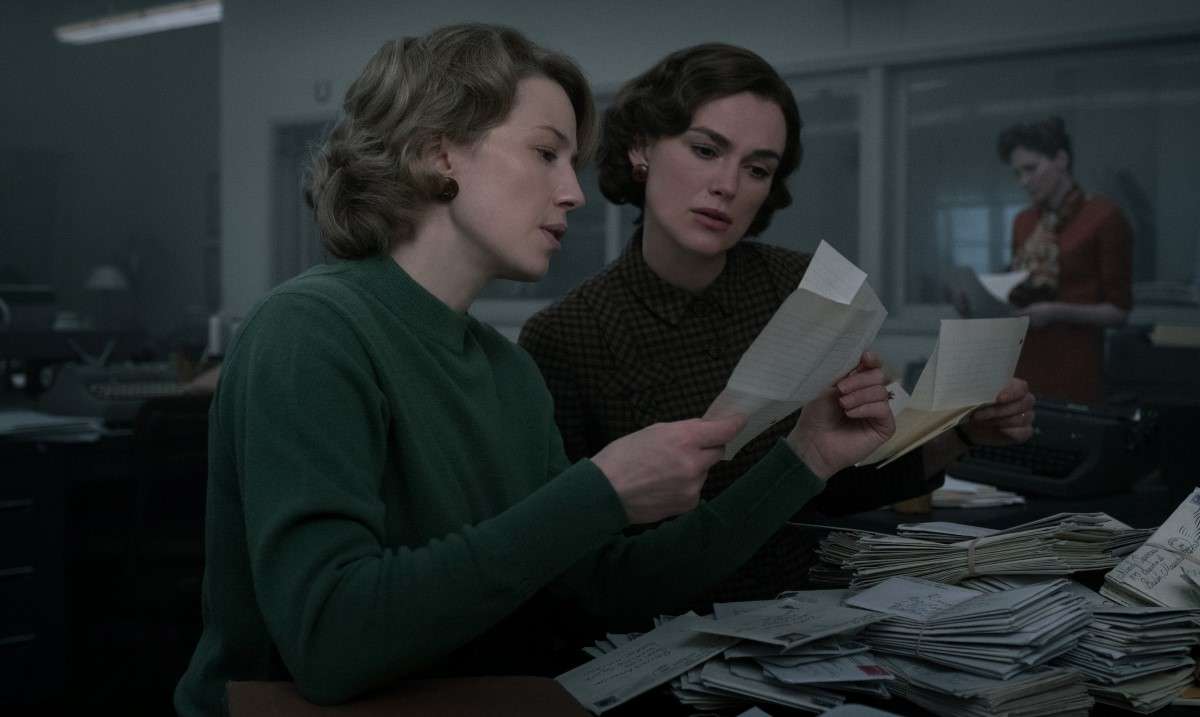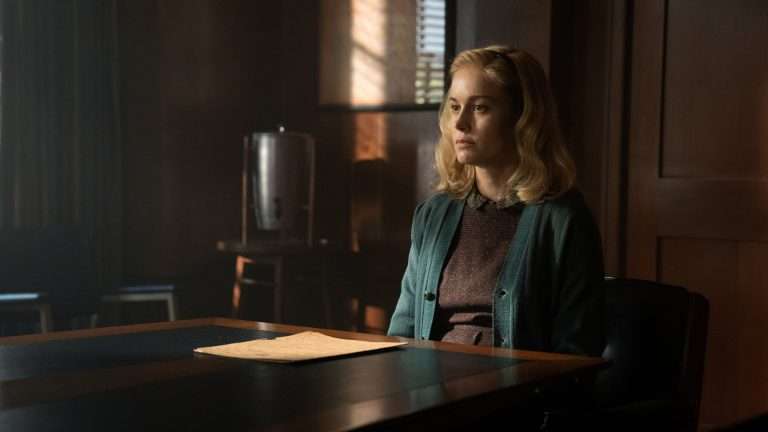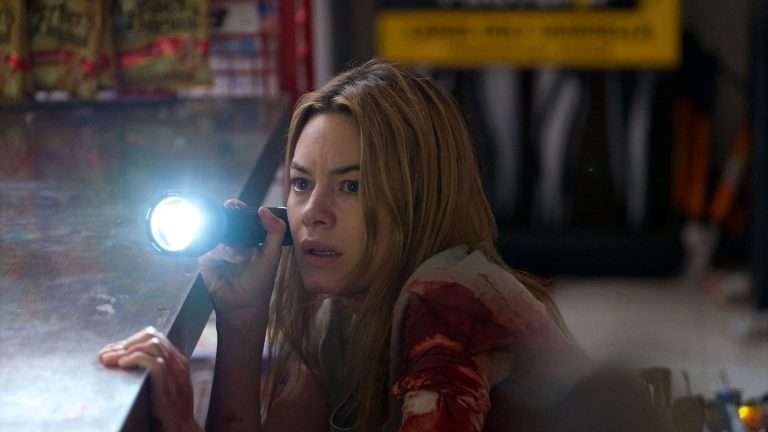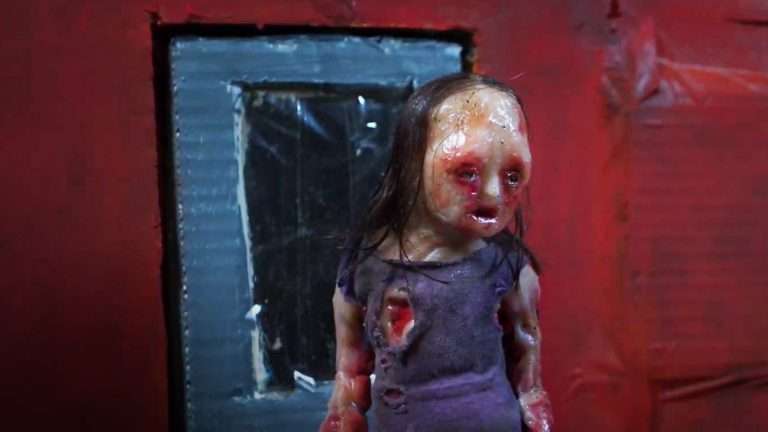Boston Strangler Ending Explained (2023): The story of this 2023 edition of “Boston Strangler” follows Loretta McLaughlin (Keira Knightley), who first reported on the early strangler murders and connected them. She was responsible for releasing the first story covering these murders. After being forced to drop the story by her editor (Chris Cooper), she and the veteran reporter Jean Cole (Carrie Coon) join hands to re-investigate the murders once they restart.
A fourth woman found murdered in her apartment a few days later after Loretta’s report, a pair of stockings tied around her neck, forces the “Record American” newspaper to rethink their strategy. Loretta was finally given the assignment to work on the “serial killings,” with veteran journalist Jean Cole assigning her to work on the case and, in essence, babysit her.
Boston Strangler (2023) Plot Summary & Movie Synopsis:
How did Loretta McLaughlin and Jean Cole’s persistence expose systemic failures in the Boston PD?
From the beginning, Loretta McLaughlin and Jean Cole’s thesis on the Boston strangler case had been that the serial killer had only been murdering women, especially women staying alone. Both the women’s misgivings were repeatedly disregarded. The first couple of killings in Michigan might not have been actually connected to the Boston ones in reality. Still, the film chooses to take that cinematic liberty as a device to establish Loretta’s struggles, which become established further as Loretta and Jean’s assignment as part of the investigative team gets published in the papers.
It is also shown that investigators from New York and Michigan had tried to contact Boston PD. Unfortunately, the homicide division would not pick up their calls or listen to their suggestions of this being the work of a singular serial killer. The complaints about Boston PD were finally reported to Loretta by the investigator from Michigan PD, prompting her to write a report.
This caused a massive uproar, with the commissioner being suspended and the Attorney General taking over the case. It also caused Loretta and Jean to become persona non grata by the Boston PD. It became so bad that Loretta was finally clueless as to whether the stalker she discovered through her window was the actual serial killer or an angry policeman.
How did Loretta and Jean balance personal risks with journalistic pursuits in uncovering the truth?
Loretta and Jean also realize that assigning the case to two female reporters in the 1960s is basically a photo op. Publishing their photographs in the papers exposes their personal lives. Loretta starts receiving strange phone calls at her home, which doesn’t go down well with her husband. When she shares these events with Jean, Jean reveals that she had to delist her number years ago due to her occupation, an occupation which Loretta recently became a part of after having worked on the Lifestyle beat.
The film, however, also shows Loretta managing to take most of the risky moves on her own. She tries to find the ex-boyfriend of a recently deceased, who turns out to be creepy and possessive. When she reaches Daniel Marsh’s ex-boyfriend’s home, her senses are immediately on alert as Marsh invites her to the other room at the far end of the house and asks her to wait while the house itself looks moldy and dark.
Trusting her instincts, Loretta makes an excuse and rushes out of that house. Much later in the film, Daniel Marsh is arrested by the police for suspicion of murder. Jean discovers one of the other victims having an affair with her boss, a leading industrialist. The victim had been discovered pregnant with the industrialist’s child, thus giving him a clear motive for murder.
How did the Boston Strangler case impact the journalists’ personal lives?
Loretta’s personal life too slowly starts falling into shambles. While her husband James (Morgan Spector) had been supportive in the beginning, choosing to take up the responsibilities of caring for their children and the house, their relationship soon starts to crack as the investigation forces Loretta to stay for long hours at the office and also leave at odd hours, during family gatherings.
It also didn’t help that James’ sister’s impression of Loretta working out of the house matched society’s general dubiousness about women wanting to work outside the confines of their houses. While Jean’s personal life isn’t explored in much depth in the film, we are treated to a conversation between Jean and her husband in one scene.

It helps us realize that, unlike Loretta and James, Jean is a veteran investigative journalist, which contributes to her husband’s reluctant acceptance of the situation. Thus, they manage to support each other even when their marriage is strained. In one of the rare tension-filled moments of the movie, Loretta also receives death threats in the form of letters containing newspaper clippings of her and Jean’s photographs covered with red crosses.
How did Loretta and Jean’s investigative work lead to the capture of Albert DeSalvo?
As the investigation progresses, Albert DeSalvo (David Dastmalchian), one of the primary suspects in this case, starts popping up, as he has already been a registered sex offender in that area. Upon investigating, the two women realize that the cons DeSalvo would utilize to gain access to the women’s apartments matched with what the killer had used as an excuse to gain entry.
Loretta is convinced that DeSalvo is the Boston Strangler even though Detective Crowley (Alessandro Nivola) refutes it, saying he had been in prison at the time of the murders. Checking into the records, Loretta and Jean discover that DeSalvo had been granted an early release two months before the killings began. Publishing this article forces the department to arrest DeSalvo.
With the help of Crowley, Loretta ensures that an identification test is organized with the woman who had almost been one of the victims. DeSalvo and a few other prisoners were brought in as part of the line-up. But the woman pointed to George Nassar, another prisoner, instead of DeSalvo. It was all for naught, as the police did not make the results of this test public. However, they managed to record a full locked room confession from DeSalvo, where he admitted to having committed all thirteen murders.
The catch was that he had managed to hire a top defense lawyer, F. Lee Bailey, who had cut a deal with the department to record DeSalvo’s confession, but it would not be used in a court of law. Thus DeSalvo would be tried for rape and other charges but not for the murder, and the Boston PD would close the case.
Boston Strangler (2023) Ending Explained:
How did Loretta McLaughlin continue her pursuit of the truth about the Boston Strangler?
The Boston Police’s proclamations of having solved the case and that the criminal is already in jail and would remain there for a long time did not sit right with the families of the victims or with Loretta herself. She wanted to continue exposing Boston PD’s all-too-apparent malpractice and incompetence but was stopped by her editor and Jean, who had already taken on a different assignment.
Loretta, meanwhile, contacted Crowley, who had left the Boston PD, finally disillusioned with his job. While he did not initially agree with Loretta’s hypothesis that he already owned a copy of the DeSalvo recording, she found copies of the recording on her desk the next day, the parcel marked “For my sister Sally,” the moniker Crowley had advised Loretta to use while trying to contact him.
Upon listening to the recording, both Loretta and Jean realize that the lawyer has shown DeSalvo photos of the crime scene to ensure that the confession matched the details of the case. These fumblings by DeSalvo were already recorded. Eventually, Loretta manages to make contact with DeSalvo after she convinces DeSalvo’s brother to help her. DeSalvo agrees to talk with her in prison, but he is murdered that night.
How does the film challenge the public perception of the Boston Strangler?
On a visit to the prison, Loretta was finally given the lead to another prisoner – George Nassar, the same man who had been cellmates with DeSalvo and also Daniel Marsh. As Loretta finally sits across from Nassar and asks him the truth, Nassar reveals the entire confession was a ploy by Nassar and his lawyer to earn money (ten grand per victim), especially the money promised in exchange for providing conclusive evidence in the Boston Strangler case. DeSalvo agreed to the confession because his lawyer promised him a book deal, which would earn him a payday of millions. Nassar thus killed him to prevent the truth from coming out.
The case of “Boston Strangler” wasn’t solved either in the film or in reality. The movie stresses the theory of multiple murderers taking on the moniker of the Boston Strangler, committing the crimes to justify their own ends. This, according to the movie, proves the different modus operandi and the varying ages of the victims as the murders progressed over the years.
The commentary “Boston Strangler” tries to make about how a “singular identity” of the Boston Strangler as a reckless maniac is a safer option for the harried general public than acknowledging the basic truth about how the violence of a man killing a woman has, unfortunately, occurred with alarming regularity is an interesting and incisive one. DNA tests in 2013 would ultimately link Albert DeSalvo to the thirteenth and final victim, but the rest of the killings remain unsolved.
What were the lasting impacts of the Boston Strangler case on the lives of Loretta and Jean?
As the images of the actual women accompanied with text informed, Loretta continued being a journalist and became an award-winning medical reporter at the Boston Globe. She was one of the first journalists to cover the HIV/AIDS crisis during the 1980s. Her marriage with James did not last, and they ended up divorcing.
Meanwhile, Jean Cole continued to be an investigative journalist over the next thirty years. She and Loretta remained close friends. George Nassar remains in prison and is one of the very few individuals associated with the Boston Strangler case who is still alive. He, however, never managed to receive the huge payday from Albert DeSalvo’s confession.
Final Thoughts:
The proliferation of movies with a washed-out aesthetic, a gloomy color palette, an unhealthy dose of swamp green covering every frame of the film, and the only source of warmth or brightness in the cinematography being the low-wattage bulbs within the protagonist’s house all contribute in totality to the gloomy atmosphere. It’s to be expected given the subject matter, and it can be traced back to David Fincher’s “Zodiac,” which was later perfected in his two-season masterpiece “Mindhunter.”
Like any movie making its mark and becoming the vanguard of a genre, it distills itself into becoming a trope. Thus, Matt Ruskin’s “Boston Strangler” can slot neatly into the “period piece-investigative journalism-serial killer” movie with the Fincher aesthetics to match. However, Ruskin, who has also written the screenplay, couldn’t manage to manufacture any tension or unease throughout its 112-minute runtime.
A story like this deserves a much sharper screenplay. It is unsurprising that Ruskin maybe wanted to explore inward and respectfully approach a true story of unimaginable violence. But considering the genre Ruskin is playing in and the movies he is drawing inspiration from, the lack of tension, urgency, or any sort of suspense in this movie is baffling.
This lack of tension and urgency has a cumulative impact because it contributes to the viewer’s serious lack of engagement. Thus, the revelations about the Boston Strangler’s identity lack the impact they deserve. “Boston Strangler” tries too hard to be Fincher’s “Zodiac,” and its effort is what turns a viewer off.








![American Honey [2016] : Spider-Woman of the Dumpster!](https://79468c92.delivery.rocketcdn.me/wp-content/uploads/2016/12/AmericanHoney_Trailer2-768x432.jpg)
